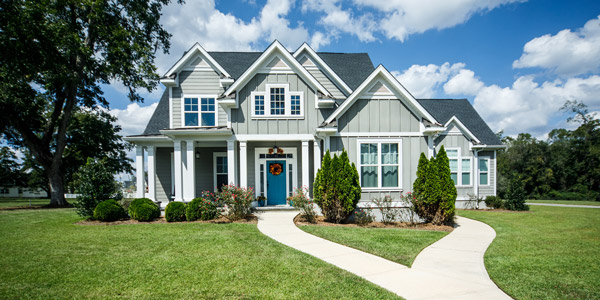Homebuyers
Beat the Heat: 7 Ways to Save Money on Buying a Home This Summer
June 21, 2024
Buying a home these days generally isn't cheap.
Prices are elevated and mortgage rates are high. However, these challenges don't mean that would-be buyers and bargain-hunters should despair. Instead, they should strategize.
With some planning and perseverance, there are plenty of ways that buyers can save big money when purchasing a home this season.
"You can still find a home at a good price," said Atlanta-based real estate broker Rick Hale, who works for Keller Williams.
Below are seven tips on how to save money when buying a home this summer.
Tip 1: Start with good credit if you want to save money

If you want to save money on your home purchase, start by cleaning up your credit.
Borrowers with higher credit scores may be able to snag a loan with lower mortgage rates and fees. That may save buyers quite a bit of money upfront as well as over time.
"The better your credit score…the stronger you are in the eyes of the lender," said Hale.
Don't panic if you're not there yet. If your score is not above 620, some companies can help you to raise it.
You should also be mindful of your debt-to-income ratio. If your debt is high, focus on paying it down. This will help to improve your credit score.
And don't make any big purchases or open new credit cards while you're shopping for a new home. Buying a new car or dining room set could hurt your debt-to-income ratio as well as your credit score.
"The only way one should mess with their credit near a home purchase is by working to increase their score," said Ali Wolf, chief economist of the real estate consultancy Zonda.
Tip 2: Hire an agent who can help you find deals
Find a real estate agent who knows the areas where you hope to buy. They may know where the deals may be hiding.
"A good agent lives, eats, works, and plays in those areas," said Hale.
That's important because agents know how often homes go up for sale in these areas, how much these homes similar homes have sold for (so you don't overbid), and if there may be more affordable opportunities nearby.
Agents should also be able to help buyers negotiate prices, closing costs, and even mortgage rate buydowns. The latter is a way that sellers can buy down a buyer's payment rate for the first few years of the buyer's mortgage.
Tip 3: Negotiate with sellers

Don't be afraid to negotiate. It could save you hundreds, if not thousands, of dollars.
You may not have as much luck asking for a discount on a move-in ready in a desirable location, especially if the property receives multiple offers.
You're more likely to be successful with fixer-uppers and homes that have been sitting on the market for long stretches and haven't attracted as much interest.
Buyers can ask the seller to lower the price, contribute to closing costs, buy down their mortgage rates, and make expensive repairs.
"Don't be afraid to negotiate, even if it feels uncomfortable," said Wolf.
Tip 4: Don't get into a bidding war
Another way to save money is to avoid getting pulled into a bidding war. Competing offers drive up prices, causing buyers to blow past their budgets.
It's important not to put yourself in a bad financial position. You want to make sure that you can afford your monthly mortgage payments, as well as cover any unexpected repairs or emergencies that may come up.
"If the agent calls you and says there's another offer, don't outbid yourself," said Hale.
Be prepared to walk away to prevent unnecessary spending.
Tip 5: Consider buying new construction
Many buyers on tight budgets don't even consider new construction because traditionally these homes have generally been more expensive than what is available on the resale market. That's changing.
Many builders have been putting up smaller, more affordable homes for sale. They often are quick to slash prices if homes aren't selling. And some of the larger builders have been buying down mortgage rates either temporarily—or even for the full duration of a 30-year Fixed-Rate loan.
"Many new home builders are offering incentives to homebuyers," said Wolf. "For example, consumers buying an existing home may end up with a 7% interest rate. Whereas a consumer buying from a builder could end up with one in the mid-5%s."
A lower rate could save you hundreds of dollars a month on your mortgage payment and thousands, if not tens of thousands of dollars, over the life of your loan.
This could make buying a newly built home a big cost-saving opportunity.
Tip 6: Look into VA, USDA, and FHA loans
Government-backed loans may be able to save you money through lower interest rates and smaller down payment requirements.
Active members of the military, veterans, and their spouses may want to consider a mortgage through the U.S. Department of Veterans Affairs. These VA loans offer lower mortgage rates and don't require down payments or private mortgage insurance (PMI.)
U.S. Department of Agriculture (USDA) loans, which are often used in more rural areas, are similar. Buyers can snag lower rates and not have to make down payments on these types of loans.
Those who don't qualify for a VA or USDA loan may want to consider a Federal Housing Administration (FHA) loan. These mortgages require down payments as low as 3.5% of the sale price of the home and generally have lower mortgage rates as well.
"Explore all your loan options, including government-backed loans, to find the best fit for your financial situation and potentially save a significant amount of money," said Hale.
Tip 7: Make a larger down payment
Coming up with a larger down payment can also be a money-saving strategy.
This is because you'll be taking out a smaller loan and paying interest on a lesser amount of money. Some lenders might offer you a lower mortgage rate.
Plus, putting down at least 20% means you won't have to pay private mortgage insurance each month.
"Squirrel away as much money as possible," said Wolf. "Having a large down payment isn't necessary but can help bring down the monthly mortgage payment."






 Smart Moves Start Here.
Smart Moves Start Here.